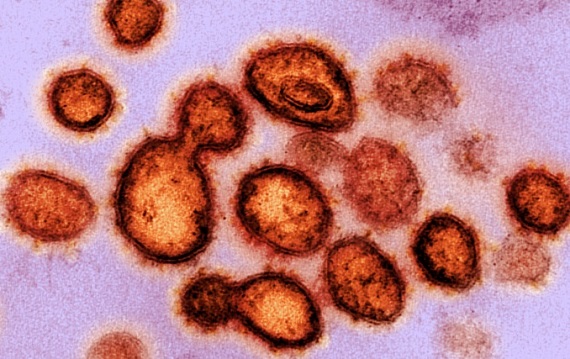Thailand-Medical-News-Host-Protein-ARF1-Could-Be-the-Hidden-Weak-Spot-in-COVID-19-Infection
Nikhil Prasad Fact checked by:Thailand Medical News Team Jul 10, 2025 7 months, 4 days, 5 hours, 26 minutes ago
Thailand Medical News: Chinese Scientists Identify ARF1 Protein as a Key Driver of SARS-CoV-2 Virus Spread
Researchers from the State Key Laboratory of Virology and Biosafety at the Wuhan Institute of Virology, Chinese Academy of Sciences, along with collaborators from the University of Chinese Academy of Sciences and Hubei Jiangxia Laboratory, have discovered that a human protein called ARF1 plays a crucial role in helping the SARS-CoV-2 virus multiply and cause disease. This
Thailand Medical News report highlights a breakthrough that could lead to broad-spectrum antiviral therapies, effective even against new variants of COVID-19.
 Host Protein ARF1 Could Be the Hidden Weak Spot in COVID-19 Infection
Host Protein ARF1 Could Be the Hidden Weak Spot in COVID-19 Infection
The team found that ARF1 is exploited by the virus to assist in assembling new viral particles inside the host cells. Blocking this protein or the way it interacts with the virus may become a new way to stop COVID-19 in its tracks. The scientists believe their findings can be used to design drugs that target ARF1, potentially creating treatments effective across multiple strains, including Delta and Omicron.
ARF1 Helps the Virus Multiply Inside Human Cells
SARS-CoV-2, the virus responsible for COVID-19, uses the host cell's machinery to build new copies of itself. One of the viral proteins, called the M protein, gathers in a region inside the cell known as the ER-Golgi intermediate compartment (ERGIC), where the virus assembles. The researchers discovered that ARF1 helps the M protein concentrate in this specific area, which is critical for the virus to build new infectious particles.
When scientists blocked ARF1 using genetic tools or small molecule drugs, the virus could no longer gather enough M protein in the ERGIC. As a result, the virus struggled to replicate and spread. This effect was observed in both lab-grown cells and in infected mice and hamsters.
Blocking ARF1 Can Stop the Virus
To explore real-world applications, researchers developed a small lab-made peptide that mimics a portion of the ARF1 protein. This peptide, called PEP17, prevents the M protein from attaching to ARF1, effectively disrupting the virus's ability to reproduce. In animal models, PEP17 significantly lowered viral loads in lungs and trachea and reduced COVID-related damage in infected tissues.
Even better, the approach worked not just against the original virus but also against major variants such as Delta and Omicron. This gives scientists hope that drugs targeting ARF1 or the ARF1-M connection could be effective even as the virus continues to evolve.
A New Target for Future COVID Therapies
The research suggests that ARF1 is a vital helper protein that the virus depends on, making it a promising target for future antiviral drugs. Current COVID-19 treatments mostly target the virus itself, which can mutate and become resistant. But by targeting a human protein that the virus needs and which doesn’t mutate like viral components, there’s a better chance
of stopping infection at its root.
These findings could pave the way for new antiviral strategies that not only work for current strains but are also prepared for future coronavirus outbreaks.
Scientists are already testing existing ARF1-blocking drugs, originally developed for cancer, to see if they can be repurposed for COVID-19 treatment.
The study findings were published in the peer reviewed journal: Nature Communications
https://link.springer.com/article/10.1038/s41467-025-61431-8
For the latest COVID-19 News, keep on logging to
Thailand Medical News.
Read Also:
https://www.thailandmedical.news/news/host-factor-plac8-plays-a-critical-role-in-pancreas-infection-by-sars-cov-2
https://www.thailandmedical.news/news/omicron-covid-19-variants-linked-to-direct-heart-damage-and-dangerous-irregular-heartbeats
https://www.thailandmedical.news/news/study-shockingly-finds-that-the-nucleocapsid-protein-of-the-covid-19-virus-triggers-brain-cell-aging
